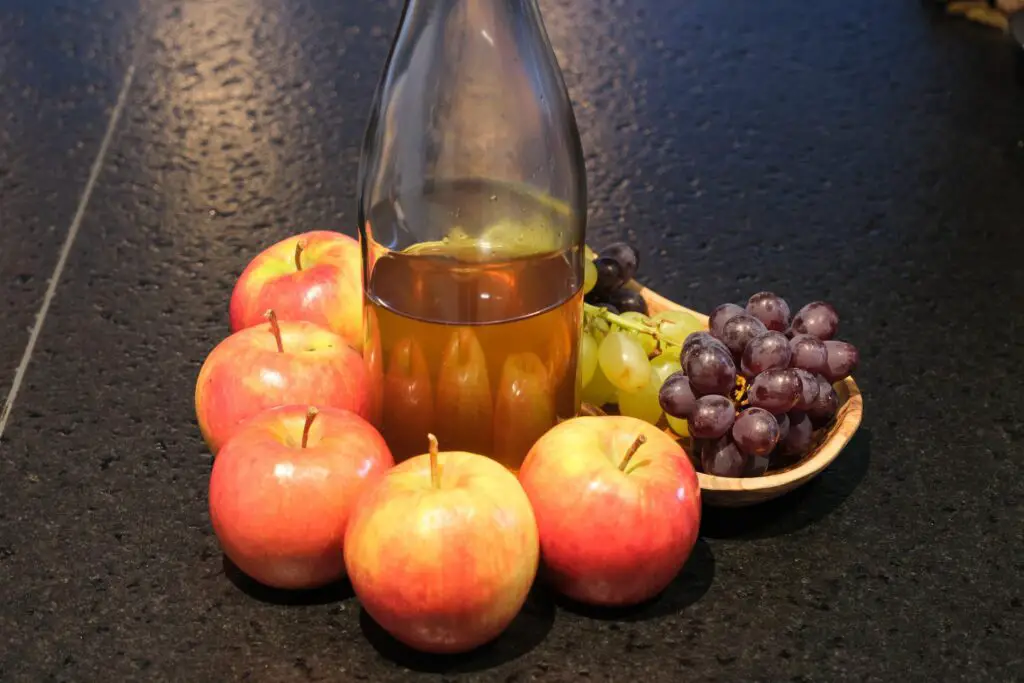Ingredients:
- 1 bunch celery
- 2 cups water
- 3 smalls piece ginger (½ inch piece )
- 2 tablespoons key limes or approximately 2 lime juice
- 6 tablespoons honey or 4 teaspoon sugar
Course: beverage,drink
0 · ·
Ingredients:
Course: beverage,drink
0 · ·
Ingredients:
Course: beverage,drink
1 · ·
Ingredients:
Course: beverage,drink
0 · ·
Ingredients:
Course: beverage,drink
4 · ·
Green tea is a popular beverage that is enjoyed by people all over the world. It is known for its many health benefits, including its ability to boost metabolism and help with weight loss. But is green tea low in FODMAP? Let’s take a closer look at this question.
The answer is yes, green tea is low FODMAP. This is because it is made from Camellia sinensis leaves, which do not contain any fructose or other sugars that are high in FODMAPs. Green tea also does not contain any gluten or lactose, making it a great choice for those on a low FODMAP diet.

Green tea is a type of tea that is made from the leaves of the Camellia sinensis plant. The leaves are dried and then brewed to create the tea. Green tea is naturally low in calories and contains a variety of antioxidants, which is why it is often touted as a healthy beverage choice.
The main concern with green tea for those on a low FODMAP diet is the presence of fructans. Fructans are a type of carbohydrate that is poorly absorbed by some people, which can lead to digestive symptoms like bloating, gas, and abdominal pain. However, not all green teas contain high levels of fructans. In fact, many green teas are low in fructans and are safe to consume on a low FODMAP diet.
Green tea is a healthy beverage choice for many reasons. Here are some of the top benefits of green tea, particularly for those on a low FODMAP diet
If you are looking for a healthy and refreshing beverage, green tea is a great choice. And, if you are on a low FODMAP diet, there are many green teas that are safe for you to consume.
There are a few points you need to consider when preparing green tea with low fodmap
Green tea is a healthy and refreshing beverage that is perfect for those on a low FODMAP diet. By following the preparation tips above, you can enjoy green tea without triggering your digestive symptoms and You can add brown sugar for better taste.
It is an excellent beverage choice for people on a low FODMAP diet. It is made from Camellia sinensis leaves, which do not contain any fructose or other sugars that are high in FODMAPs. Green tea also does not contain any gluten or lactose, making it a great choice for those on a low FODMAP diet.
You can find green tea with low FODMAP in most grocery stores. Look for brands that are labeled “low FODMAP” or check the ingredient list to make sure it does not contain any high FODMAP ingredients.
You can also find green tea with low FODMAP online from a variety of retailers.
When purchasing green tea, look for leaves that are bright green in color. Avoid tea that is yellow or brown, as this is an indication that the leaves are old and have lost their flavor.
You should also avoid tea bags, as they often contain lower-quality leaves. Instead, opt for loose leaf green tea, which is of higher quality.
When stored properly, green tea leaves can last up to six months. However, for the best flavor, it is best to use them within four months of purchase.
Green tea should be stored in a cool, dry place away from direct sunlight. Once opened, green tea leaves should be stored in an airtight container.
Brewed green tea should be stored in the fridge and consumed within three days.
Green tea has a light, grassy flavor with a slightly bitter aftertaste. The texture is thin and watery.
Yes, green tea is healthy! It is a good source of antioxidants and has been linked to numerous health benefits, including weight loss, improved brain function, and reduced risk of cancer.
Green tea is also low in calories and is naturally gluten-free and lactose-free and you can drink it anytime.
Yes, green tea is safe for people with allergies. It is important to check the ingredient list to make sure it does not contain any ingredients that you are allergic to.
If you are allergic to Camellia sinensis, you should avoid green tea.
There is no general recommended amount of green tea that you should drink. However, it is important to limit your intake if you are pregnant or breastfeeding, as green tea contains caffeine. It is also important to limit your intake if you have a medical condition, such as heart disease or high blood pressure.
If you are new to green tea, start with one cup per day and gradually increase your intake as tolerated.

There is no definitive answer to this question. However, some people find that drinking green tea in the morning helps to improve their energy levels and focus. Others prefer to drink it in the evening as a way to relax before bed.
The final thought is that Green tea is a healthy and refreshing beverage that is perfect for those on a low FODMAP diet. By following the preparation tips above, you can enjoy green tea without triggering your digestive symptoms.
0 · ·
If you are following a low FODMAP diet, you may be wondering if citric acid is low FODMAP. This is an important question to ask because citric acid is often used as a flavoring agent in food products. In this blog post, we will explore whether or not citric acid is low FODMAP and provide some helpful tips for those who are trying to follow a low FODMAP diet.
Citric acid is a common ingredient in many food products, including soft drinks, jams, and jellies. It is also used as a preservative in some processed foods. Citric acid is produced naturally in citrus fruits, but it can also be made synthetically. The synthetic form is often used in food processing because it is less expensive than the natural form.
Citric acid is low FODMAP at levels of 1 gram per serving. This means that it is unlikely to cause symptoms of irritable bowel syndrome (IBS) in people who are sensitive to FODMAPs. However, citric acid may still trigger symptoms in some people with IBS. If you are sensitive to citric acid, you may want to avoid foods that contain it or limit your intake of these foods.
Citric acid is found in many fruits and vegetables, as well as in some processed foods. It is used as a preservative and for its sour flavor. For people with IBS, citric acid can be a trigger for symptoms. However, citric acid is not completely eliminated on the low FODMAP diet. Instead, it is restricted to small amounts. This is because citric acid is only partially absorbable by the gut. When citric acid is consumed in large amounts, it can cause gas, bloating, and diarrhea. Therefore, people with IBS should limit their intake of citrus fruits, tomatoes, and other foods high in citric acid. However, small amounts of citric acid are unlikely to trigger symptoms and can be safely consumed on the low FODMAP diet.

Citric acid is one of the most common acids found in nature. It is present in citrus fruits, as well as many other fruits and vegetables. In addition, citric acid is a major component of many soft drinks and other processed foods. Unlike other acids, citric acid is not corrosive and is actually quite safe to consume. In fact, citric acid is often used as a natural preservative. Citric acid is also low on the glycemic index, which makes it a good choice for people with diabetes. However, citric acid can be a trigger for those with irritable bowel syndrome or other gastrointestinal disorders. If you have any concerns about consuming citric acid, be sure to speak with your doctor or dietitian.
Citric acid is a weak organic acid found in citrus fruits. It is used as a preservative and emulsifier in food production and is also a key ingredient in many soft drinks. In addition to its culinary uses, citric acid is also used in beauty products and cleaning agents. It is an FDA-approved food additive and is generally considered safe for human consumption. However, some people with digestive disorders may need to avoid foods high in citric acid, as it can trigger symptoms such as bloating and intestinal pain. Therefore, those on a low-FODMAP diet should limit their intake of citric acid-containing foods or choose products that are labeled “low-FODMAP.” Overall, citric acid is a versatile ingredient with a variety of uses.

Citric acid is a sour-tasting compound that is found in citrus fruits, such as lemons and limes. It is also used as an ingredient in many processed foods, such as soda, candy, and jelly. Although citric acid can be acidic, it is actually classified as a weak acid. This means that it does not fully dissociate into ions in water. Citric acid has many uses, both in the kitchen and in the industry. For example, it can be used to make homemade cleaning solutions, descaling solutions for coffee makers, and natural preservatives for food. It is also commonly used as a food additive to add flavor or tartness.
Citric acid is low FODMAP and is safe for people with IBS to consume. Additionally, citric acid has many health benefits, such as reducing inflammation, boosting the immune system, and improving digestion. Therefore, consuming foods that contain citric acid or taking a citric acid supplement can be beneficial for overall health.
Citric acid is a sour-tasting compound that is found in many fruits and vegetables. It is also used as an additive in some processed foods. Although citric acid is generally safe, there is some concern that it may trigger symptoms of irritable bowel syndrome (IBS) in people who are sensitive to it. Citric acid is classified as a low-FODMAP food, meaning that it is unlikely to cause digestive problems in people with IBS. However, some studies have found that citric acid can trigger symptoms like bloating, gas, and abdominal pain in a small number of people with IBS. If you suspect that citric acid is causing digestive problems, you may want to avoid foods that contain it or speak to a doctor about other possible dietary triggers for your symptoms.
Citric acid is a compound that is found naturally in citrus fruits, but it is also used as an ingredient in many processed foods. While citric acid is generally considered safe, some people may experience side effects such as heartburn or upset stomach. Additionally, citric acid is a low-FODMAP food, which means that it may trigger symptoms in people with IBS. However, there is no need to avoid citric acid altogether; many people with IBS can tolerate small amounts of it without any problems. If you are concerned about consuming citric acid, talk to your doctor or dietitian for more information.
A low FODMAP diet is an effective way to manage symptoms of irritable bowel syndrome (IBS). FODMAPs are a group of short-chain carbohydrates that are poorly absorbed by the digestive system. When consumed in large quantities, they can cause bloating, gas, and abdominal pain. The diet involves eliminating high-FODMAP foods from the diet and then slowly reintroducing them one at a time. There are a few things to keep in mind when following a low FODMAP diet.
First, not all fruits and vegetables contain high levels of FODMAPs. For example, bananas, blueberries, and carrots are all low in FODMAPs. Second, some processed foods contain hidden sources of FODMAPs. For example, isomalt is a type of sugar alcohol that is often used as a sugar substitute. It is often found in sugar-free gum and candy. Third, it is important to work with a registered dietitian who can help you navigate the diet and make sure you are getting the nutrients you need. following a low FODMAP diet can be tricky, but with a little planning and guidance, it can be an effective way to manage IBS symptoms.
Read More;
7 · ·
You may be wondering if barley is low FODMAP. The answer is yes, barley is low FODMAP in moderation. However, it is important to remember that everyone’s body is different and you may need to experiment with different amounts of barley to see how your body reacts. In this blog post, we will discuss the benefits of barley and provide some recipes that include this delicious grain!
FODMAP stands for all forms of carbohydrates that the body finds hard to absorb. When these carbohydrates are not absorbed properly, they can draw water into the intestine and ferment, leading to gas, bloating, and other gastrointestinal symptoms.
The low-FODMAP diet is a diet that is designed to reduce symptoms of irritable bowel syndrome (IBS) by avoiding foods that contain these poorly-absorbed carbohydrates. While the diet can be difficult to follow, many people find that it significantly reduces their symptoms. Additionally, there is some evidence to suggest that the diet may also be beneficial for people with other gastrointestinal disorders such as Crohn’s disease and celiac disease. If you think you may benefit from following a low-FODMAP diet, speak to your doctor or a registered dietitian. They will be able to help you determine if the diet is right for you and provide guidance on how to follow it correctly.
Did you know that barley is a delicious, nutritious grain that can be enjoyed by everyone? Barley is a nutritious grain that may be used to make a variety of meals, including soups and stews, bread, and cakes. It is also a good source of fiber and protein, making it an excellent choice for those looking to add more healthy whole grains to their diet. Best of all, barley is low in the FODMAPs which can cause digestive distress for some people. So whether you are looking for a new grain to try or are simply looking for a delicious and healthy way to add more whole grains to your diet, barley is a great option!
There is a lot of confusion about whether or not barley is low fodmap. Some people say that it is, while others say that it is not. The truth is, moderate amounts of barley are considered to be low fodmap. This means that you can eat up to 1/2 cup of cooked barley per day without triggering symptoms.

If you are sensitive to fodmap foods, you may want to limit your intake of barley to 1/4 cup per day. You can also look for products that are made with hulled or pearled barley, as these tend to be easier to digest. When it comes to moderation, the key is to listen to your body and see how it reacts to different foods. If you find that eating barley bothers your stomach, then you may want to limit your intake or avoid it altogether.
Barley is a versatile grain with many applications, including soups and stews, as well as salads and side dishes. It’s also low in calories and fat while being high in fiber, vitamins, and minerals. While barley is generally considered to be healthy food, some people may need to limit their intake due to its high content of fructans. Fructans are a type of carbohydrate that can cause digestive problems for those with irritable bowel syndrome or other gastrointestinal disorders.
However, there are many ways to enjoy barley without having to worry about its effect on your digestive system. For example, you can cook it in broth instead of water, add it to soups or stews after cooking or soak it in water for several hours before cooking. You can also look for products that are made with hulled or dehulled barley, which is lower in fructans than other types of barley. With a little bit of planning, you can easily include barley in your diet in a way that is both delicious and nutritious!

Barley is a delicious grain that can be used in many different recipes. It is often used in soups and stews, as it has a hearty flavor that is perfect for winter dishes. Barley is also commonly used in brewing beer and is often used as a thickener for sauces and gravies. However, barley is not just limited to savory dishes; it can also be used in sweet recipes, such as cookies and cakes.
In addition, due to its high fiber content, barley is a very healthy grain that can be enjoyed by people of all ages. And best of all, barley is low FODMAP, so it is perfect for people who are following the low FODMAP diet. So whether you are looking for a healthy grain to add to your soups or stews or are looking for a tasty way to thicken your sauces and gravies, barley is the perfect ingredient for you.
Barley is a grain that is often used in brewing beer and is also found in some processed foods. It is rich in fiber and minerals and is a good source of vitamins B1, B2, and niacin. Although barley is gluten-free, it is not suitable for people with celiac disease or gluten sensitivity that is not celiac disease. This is because barley contains a protein called hordein, which is similar to gluten.
Hordein can trigger symptoms such as bloating, diarrhea, and abdominal pain in people with celiac disease or gluten sensitivity that is not celiac. However, not all people with celiac disease are sensitive to hordein. If you are sensitive to gluten, you should avoid foods that contain barley. However, if you are not sure whether you are allergic to barley, you should speak to a doctor or dietitian before excluding it from your diet.
While wheat is the most common grain in the Western diet, there are many other grains that can be enjoyed on a low FODMAP diet. These include oats, buckwheat, quinoa, and rice. Oats are a good source of dietary fiber and are typically well tolerated by those with IBS. Buckwheat is another high-fiber grain that is also naturally gluten-free. Quinoa is a delicious grain that is rich in protein and can be used in a variety of dishes. Rice is a versatile grain that is easy to digest and is often included in elimination diets. While barley is technically alow FODMAP grain, it often contains high levels of fructans, so it is best to avoid it if you are following a low FODMAP diet.
Interesting;
0 · ·
Apple cider vinegar is a popular natural remedy for many things. Some people believe that it can help with weight loss, heart health, and more. But is apple cider vinegar low in FODMAP? This blog post will explore whether or not apple cider vinegar is low FODMAP and discuss the benefits of consuming it if you are following a low FODMAP diet.
The short answer is yes, apple cider vinegar is low FODMAP. However, it is important to note that not all types of apple cider vinegar are created equal. Some brands of apple cider vinegar may contain added sugars or flavorings that are high in FODMAPs. Be sure to read the label carefully and choose a brand that is unsweetened and unflavored.

Apple cider vinegar is a type of vinegar made from apples. It is rich in acetic acid, which is thought to have many health benefits. Some people believe that consuming apple cider vinegar can help with weight loss, improve heart health, and reduce cancer risk. However, there is no scientific evidence to support these claims.
Apple cider vinegar is low in FODMAPs. This means that it is safe to consume for people following a low FODMAP diet. Acetic acid, the main component of apple cider vinegar, is a short-chain fatty acid that is not broken down by gut bacteria. This makes it unlikely to cause digestive symptoms like gas, bloating, and diarrhea. However, if you eat at the right time during breakfast, dinner, or lunch, you won’t face any issues.
There are many benefits of consuming apple cider vinegar, even if you are following a low FODMAP diet. Here are six benefits of consuming apple cider vinegar with low FODMAP:
Apple cider vinegar is to boost weight loss by increasing satiety and reducing calorie intake. One study showed that participants who consumed apple cider vinegar with a meal felt more full and ate fewer calories throughout the day.
It is good for your heart. Apple cider vinegar is thought to improve heart health by reducing cholesterol and triglyceride levels. Also, the acetic acid in apple cider vinegar can help lower blood pressure.
Some studies have shown that apple cider vinegar may help reduce cancer risk. This is likely due to the fact that it is rich in acetic acid, which has been shown to kill cancer cells in test-tube studies.
Apple cider vinegar is to improve digestion by increasing stomach acid production. This is beneficial for people with low stomach acid levels, as it also helps improve nutrient absorption. One study showed that participants who consumed apple cider vinegar had higher levels of stomach acid and better digestion.
It can help reduce inflammation similar to almonds. This means that it can help reduce inflammation throughout the body. The inflammation-reducing properties of apple cider vinegar are thought to be due to its acetic acid content.
Apple cider vinegar is thought to boost energy levels by increasing iron absorption. Iron is an important mineral for energy production. Also, it is thought to improve circulation and increase blood flow. This can help deliver more oxygen and nutrients to the cells, which is needed for energy production.
Apple cider vinegar is generally safe to consume. However, there are a few potential side effects to be aware of. These include:
The acidity of apple cider vinegar can wear away at tooth enamel. To prevent this, it is important to dilute the vinegar with water or juice before drinking it. Also, it is best to drink it through a straw.
Apple cider vinegar can cause throat irritation in some people. Also, they can experience a burning sensation in their throat.
Apple cider vinegar can reduce potassium levels in the body similar to cheerios. This is because it contains acetic acid, which is a diuretic. This can be harmful to people with kidney problems or who are taking certain medications.
Apple cider vinegar can interact with some medications, such as insulin and diuretics. Therefore, it is important to speak to a doctor before consuming apple cider vinegar if you are taking any medications.
Overall, apple cider vinegar is safe to consume and has many potential health benefits. However, there are a few side effects to be aware of. If you have any concerns, it is best to speak to a doctor before consuming apple cider vinegar.
There are a few ways to prepare apple cider vinegar with low FODMAP. One way is to dilute it with water or juice before drinking it. Another way is to add it to food. Apple cider vinegar can be used in salad dressings, marinades, and sauces. It is important to speak to a dietitian before adding apple cider vinegar to your diet.

Add apple cider vinegar to a glass of water or juice. Drink this mixture once or twice per day. Alternatively, add apple cider vinegar to low FODMAP foods such as salad dressings, marinades, and sauces.
Apple cider vinegar is found in most supermarkets. It is usually located in the condiment aisle. Alternatively, it can be bought online. also, it can be found in some health food stores.
The nutritional information for apple cider vinegar is as follows:
Apple cider vinegar is a type of vinegar made from apple cider that has undergone fermentation. It is rich in acetic acid, which has various health benefits. Apple cider vinegar is generally safe to consume, but there are a few potential side effects to be aware of. It is also important to speak to a doctor before consuming apple cider vinegar if you are taking any medications.
4 · ·
You may be wondering if beer is low FODMAP. The answer is…it depends! Some beers are low FODMAP, while others are not. This blog post will discuss the FODMAP content of beer and provide a list of low FODMAP beers that you can enjoy. We will also offer some tips for enjoying a beer on a low FODMAP diet. Cheers!
FODMAP is a term used to describe carbohydrates that are fermented, oligo-, di- and monosaccharides, as well as polyols. These are all forms of carbohydrates that the stomach is unable to absorb. When someone with a sensitivity to FODMAPs eats foods high in these carbohydrates, they may experience symptoms like bloating, gas, abdominal pain, and diarrhea. Many common foods contain high levels of FODMAPs, including some types of fruits, vegetables, grains, legumes, dairy products, and sweeteners. There is no cure for FODMAP sensitivity, but following a low-FODMAP diet can help to minimize symptoms. Some people with FODMAP sensitivity can tolerate small amounts of these carbohydrates without experiencing any problems. However, others may need to avoid all high-FODMAP foods to stay symptom-free. For example, while some people with FODMAP sensitivity can tolerate small amounts of beer, others may find that even a single sip is enough to trigger symptoms. Ultimately, everyone is different and will need to experiment with their diet to figure out what works for them.

For those who suffer from IBS, finding a low FODMAP diet can be a lifesaver. But for beer lovers, the thought of giving up their favorite beverage may seem impossible. The good news is that there are a few low FODMAP beers on the market. However, it is important to note that not all beer is created equal. Beers that are high in hops or malt typically have a higher FODMAP content. In contrast, light beers and those made with gluten-free ingredients tend to be lower in FODMAPs. So if you’re looking for a low FODMAP beer, be sure to check the label before you buy. And remember, moderation is key. Even the best low FODMAP beer should be consumed in moderation to avoid triggering symptoms.
When it comes to beer, the most common question is: is beer low fodmap? The short answer is yes, but there are a few things to keep in mind. First, all beer is made from grain, which is a high-FODMAP ingredient. However, the fermentation process breaks down the majority of the FODMAPs, so most beer is safe for people on a low-FODMAP diet. There are a few brands that brew specifically low-FODMAP beers, and these can be found at your local grocery store or online. If you’re unsure about a particular brand, you can always check the label or contact the brewery directly. Here are a few of the most popular low-FODMAP beers:
Whether you’re looking for a light lager or a ginger beer, there’s a low-FODMAP option out there for you. So next time you’re at the store, be sure to pick up one of these beers and enjoy!
Anyone following a low FODMAP diet knows that beer can be a tricky drink to enjoy. Many beers are made with wheat, which is high in fructans, and barley, which is high in both fructans and galacto-oligosaccharides (GOS). However, there are a few things you can do to enjoy a beer on a low FODMAP diet. First, choose a beer that is made with gluten-free ingredients such as buckwheat or rice. Second, opt for a lighter beer, as darker beers tend to be higher in FODMAPs. Finally, be sure to drink in moderation, as even gluten-free beers can trigger symptoms in some people. By following these tips, you can enjoy a beer on a low FODMAP diet without having to worry about triggering your symptoms.
People with IBS often have to be careful about what they eat and drink, as certain foods can trigger symptoms. Beer is a common source of stomach discomfort, and many people with IBS avoid it altogether. However, not all beer is equally problematic. The FODMAP content of beer can vary depending on the brewing process, and some beers are actually quite low in FODMAPs. In general, darker beers tend to be higher in FODMAPs than lighter beers. This is because the brewing process for dark beers involves using more malt, which is a high-FODMAP ingredient. In addition, dark beers often have added syrups or fruit flavors, which can also increase the FODMAP content. On the other hand, light beers are made with less malt and often don’t have any added flavoring agents. As a result, they tend to be much lower in FODMAPs. For people with IBS, drinking light beer may be a way to enjoy the occasional drink without triggering symptoms. Of course, everyone’s tolerance for beer (and other drinks) is different, so it’s always important to listen to your body and stop consuming a drink if it causes discomfort.
If you’re following a low-FODMAP diet, you might be wondering which beers are safe to drink. While many beers are high in FODMAPs, there are a few that are low in FODMAPs and can be enjoyed without provoking symptoms. Some of the most popular low-FODMAP beers include342 Extra Pale Ale, Little Creatures Bright Ale, and Sierra Nevada Nooner Pilsner. If you’re looking for a low-FODMAP beer that’s also gluten-free, Omission Lager is a good option. When choosing a low-FODMAP beer, it’s important to check the label to make sure that it doesn’t contain any ingredients that are high in FODMAPs, such as wheat, barley, or rye. While most low-FODMAP beers are brewed with hops, some brands use fruit or other flavoring agents that can contain high levels of FODMAPs. Therefore, it’s always best to check the label to be sure. With so many delicious options available, there’s no reason to give up beer on a low-FODMAP diet.

People with IBS often find that their symptoms are triggered by certain types of foods. The low FODMAP diet is a way of eating that eliminates certain types of carbohydrates that can be difficult to digest. While this diet can be effective for managing IBS symptoms, it can also make it difficult to enjoy some of your favorite foods, including beer. However, there are a few ways that you can enjoy a beer on a low FODMAP diet. One option is to look for a gluten-free beer, as many gluten-containing beers are also high in FODMAPs. Another option is to choose a beer that is made with alternative grains, such as sorghum or rice. Finally, you can also try making your own low FODMAP beer at home using a brewing kit designed for people with IBS. With a little bit of effort, you can still enjoy a cold beer even if you’re following a low FODMAP diet.
Read More;
0 · ·
Ingredients:
Course: beverage,drink
0 · ·
Ingredients:
Course: beverage,drink
0 · ·
Ingredients:
Course: beverage,drink
Cuisine: Mexican
0 · ·
Ingredients:
Course: beverage,drink
0 · ·
Ingredients:
Course: beverage,drink
0 · ·
Ingredients:
Course: beverage,drink
0 · ·
Ingredients:
Course: beverage,drink
0 · ·
Ingredients:
Course: beverage,drink
0 · ·
Ingredients:
Course: beverage,drink
0 · ·
Ingredients:
Course: beverage,drink
0 · ·
Ingredients:
Course: beverage,drink
0 · ·
Ingredients:
Course: beverage,drink
0 · ·
Ingredients:
Course: beverage,drink
0 · ·
Ingredients:
Course: beverage,drink
0 · ·
Ingredients:
Course: beverage,drink
Cuisine: Mexican